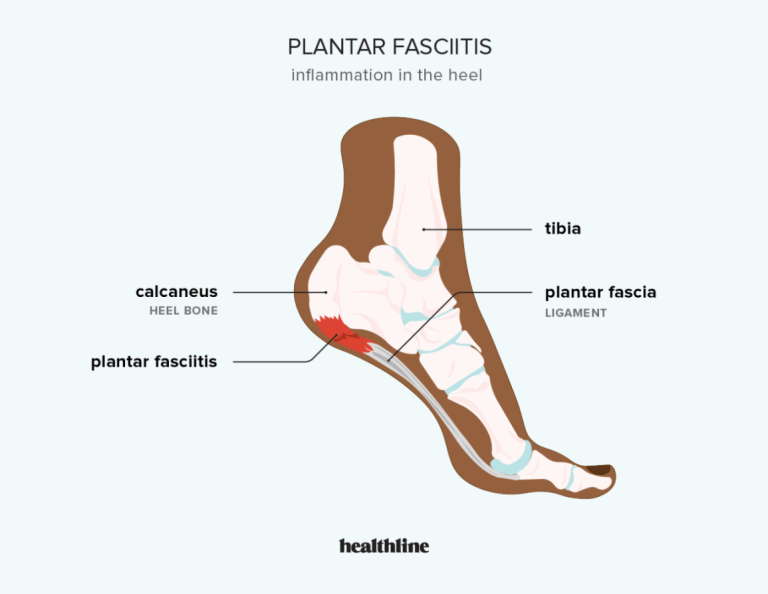Improve Marathon Time by an Hour
To improve your marathon time by an hour, focus on implementing a structured training program and incorporating interval training to increase speed and endurance. Additionally, pay attention to proper nutrition and hydration habits, get sufficient rest and recovery, and regularly assess and adjust your running technique.
Consistency and dedication in both training and lifestyle choices are key to achieving your goal.
:max_bytes(150000):strip_icc()/Dotdash-VWFit-what-is-a-good-time-for-running-a-half-marathon-2910898-v12-2005052e84014d4aad9ade7c84c51a88.jpg)
Credit: www.verywellfit.com
Training Plan
For a significant improvement in your marathon time, follow a specialized training plan. Incorporate interval training, tempo runs, and long-distance training to boost endurance and speed. This strategic approach can potentially shave off an hour from your previous marathon time.
Endurance Training
Focus on building stamina through long runs and consistent mileage.
- Gradually increase weekly mileage by 10% to prevent injury.
- Incorporate weekly long runs to improve endurance levels.
- Include tempo runs to enhance race pace and endurance capabilities.
Speed Training
Improve running speed and efficiency through targeted workouts.
- Integrate interval training sessions to boost speed and anaerobic capacity.
- Perform hill repeats to strengthen leg muscles and enhance speed.
- Add Fartlek training for variations in pace and overall speed improvement.
Consistent training, incorporating both endurance and speed workouts, is key to achieving a significant improvement in your marathon time.
Nutrition And Hydration
Proper nutrition and hydration play a crucial role in improving your marathon time by an hour. Ensuring that your body is fueled and hydrated adequately pre, during, and post-race can make all the difference. Let’s explore two essential aspects of optimizing your performance through nutrition and hydration: Pre-race Nutrition and Hydration Strategy.
Pre-race Nutrition
Preparing your body for a marathon starts well before race day. It’s important to focus on consuming a well-balanced diet that provides the necessary nutrients and energy for training and recovery. Here are some key tips for pre-race nutrition:
- Include a variety of whole grains, lean proteins, healthy fats, and fruits and vegetables in your meals.
- Ensure you consume enough carbohydrates to fuel your muscles. Aim for around 3-4 grams of carbohydrates per pound of body weight.
- Avoid high-fiber foods that can cause gastrointestinal discomfort during the race.
- Hydrate adequately before the race by consuming water and electrolyte-rich beverages.
- Consider a pre-race meal that is easy to digest and familiar to your body, ideally consumed 2-3 hours before the start.
Hydration Strategy
Staying properly hydrated throughout the marathon is crucial for maintaining performance and preventing fatigue. Follow these hydration strategies to optimize your race day:
- Drink enough fluids throughout the day leading up to the marathon to ensure you’re well-hydrated.
- During the race, aim to drink water or electrolyte-rich fluids at every aid station.
- Consider carrying a hydration pack or belt for convenient access to fluids during the race.
- Listen to your body’s thirst cues and drink when you feel the need, but avoid excessive consumption that can lead to discomfort.
- Replenish electrolytes lost through sweat by consuming sports drinks or electrolyte tablets during the race.
Remember, every individual is different, and it’s essential to listen to your body and adjust your nutrition and hydration strategy accordingly. Experiment with different foods and drinks during your training to determine what works best for you. With a well-planned nutrition and hydration approach, you’ll be on the right track to improve your marathon time by an hour.
Recovery Techniques
Recovering properly after a marathon is crucial not only for your overall well-being but also for improving your marathon time. Implementing effective recovery techniques can help you bounce back faster, reduce the risk of injury, and be better prepared for future races. In this section, we will explore two essential aspects of marathon recovery: post-run nutrition and the importance of rest and sleep.
Post-run Nutrition
Proper nutrition plays a vital role in maximizing recovery after a grueling marathon. Your body needs essential nutrients to repair damaged muscles, restore depleted energy stores, and aid in the overall recovery process. Here are some post-run nutrition tips to help you recharge:
- Hydrate: Drink plenty of water or electrolyte-rich fluids to replenish lost fluids and prevent dehydration.
- Refuel with protein: Consume a protein-rich snack or meal within the 30-minute window after your run to aid in muscle repair. Lean proteins like chicken, fish, or plant-based alternatives such as tofu or lentils are excellent choices.
- Carbohydrate replenishment: Replenish your glycogen stores by consuming carbohydrates such as whole grains, fruits, and vegetables. These provide the necessary energy for your body to recover and restore.
- Include healthy fats: Incorporate healthy fats like avocados, nuts, and olive oil into your post-run meals, as they help reduce inflammation and support recovery.
Rest And Sleep Importance
One often overlooked aspect of marathon training is the importance of rest and sleep in optimizing recovery. Resting properly allows your body to repair and rebuild muscles, while adequate sleep promotes hormonal balance and overall physical and mental well-being. Here’s why focusing on rest and sleep is essential:
- Repair and growth: Rest days give your body time to repair cellular damage and build stronger muscles, leading to improved performance over time.
- Reduce risk of injury: Proper rest and sleep help prevent overuse injuries caused by excessive strain and fatigue on your body. It allows your muscles and connective tissues to recover and strengthen, reducing the risk of future injuries.
- Hormonal balance: Quality sleep plays a significant role in hormonal regulation. It promotes the release of growth hormone, which aids in muscle recovery and tissue repair.
- Mental recovery: Rest and sleep are crucial for mental recovery as well. They help reduce stress levels, improve concentration, and promote overall mental well-being.
By prioritizing post-run nutrition and recognizing the importance of rest and sleep, you can optimize your marathon recovery and take significant steps toward improving your marathon time by an hour. Remember, recovery is an essential part of training, and by implementing effective techniques, you can set yourself up for success in your future races.
Mental Preparation
Mental preparation is as crucial as physical training when aiming to improve marathon time by an hour.
Visualization Techniques
Implement visualization techniques to mentally rehearse the race, picturing each step and milestone in vivid detail.
Mindfulness Training
Engage in mindfulness training to enhance focus and resilience during the marathon, staying present in the moment.
Race Day Strategy
When it comes to improving your marathon time by an hour, having a solid race day strategy is crucial. By focusing on pacing, fueling, and mental preparation, you can optimize your performance and achieve your goal. Let’s delve into the key elements of your race day strategy that can help you shave an hour off your marathon time.
Pacing Strategy
A well-planned pacing strategy is essential for achieving a significant time improvement in a marathon. Instead of starting too fast and exhausting yourself early on, aim for a consistent and sustainable pace throughout the race. Consider breaking down the race into segments and setting specific time targets for each segment. By maintaining discipline and not getting caught up in the excitement of the starting line, you can preserve your energy for the crucial later stages of the marathon.
Fueling During The Race
Proper fueling during the race is paramount for maintaining your energy levels and avoiding hitting the wall. Utilize aid stations to stay hydrated and consume carbohydrate-rich snacks that are easy to digest. Experiment with different fueling strategies during your training to find what works best for you. Ensuring a sustained intake of fuel can help you maintain your pace and prevent a significant drop in energy levels during the latter part of the race.

Credit: www.murderbooks.com
Credit: www.trainingpeaks.com
Frequently Asked Questions For Improve Marathon Time By An Hour
How Can I Speed Up My Marathon Time?
To speed up your marathon time, focus on consistent training, proper nutrition, and adequate rest. Incorporate interval training and tempo runs to improve speed and endurance. Monitor your progress and make adjustments to your training plan as needed.
How Do I Shave An Hour Off My Marathon Time?
To shave an hour off your marathon time, focus on these key strategies: 1. Increase your weekly training mileage gradually and consistently. 2. Incorporate speedwork sessions like intervals and tempo runs into your training. 3. Implement strength training to build muscle and improve overall endurance.
4. Fine-tune your race strategy, pacing yourself effectively and utilizing strategic fueling. 5. Seek guidance from a knowledgeable coach or join a supportive running group for accountability and additional training insights.
How Do You Take 40 Minutes Off A Marathon?
To take 40 minutes off a marathon, focus on: 1. Proper training: Increase mileage gradually and incorporate speed workouts. 2. Improve endurance: Include long runs and tempo runs in your training. 3. Optimize pacing: Start at a steady pace and avoid going too fast too soon.
4. Ensure proper nutrition: Fuel your body with a balanced diet and stay hydrated. 5. Mental preparation: Stay focused, motivated, and develop a positive mindset.
Conclusion
Achieving a one-hour improvement in your marathon time is possible with dedication and smart training strategies. By focusing on proper nutrition, endurance building, and mental preparation, you can reach your goals. Remember, consistency and perseverance are key to reaching your full potential as a runner.
Good luck on your journey to faster race times!







